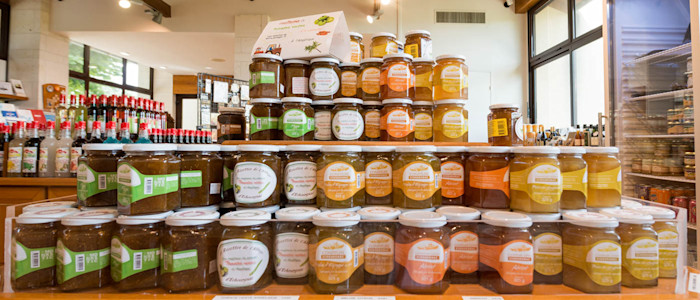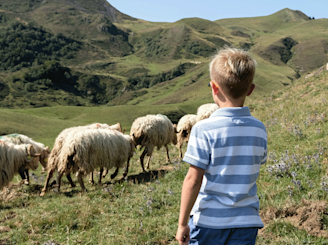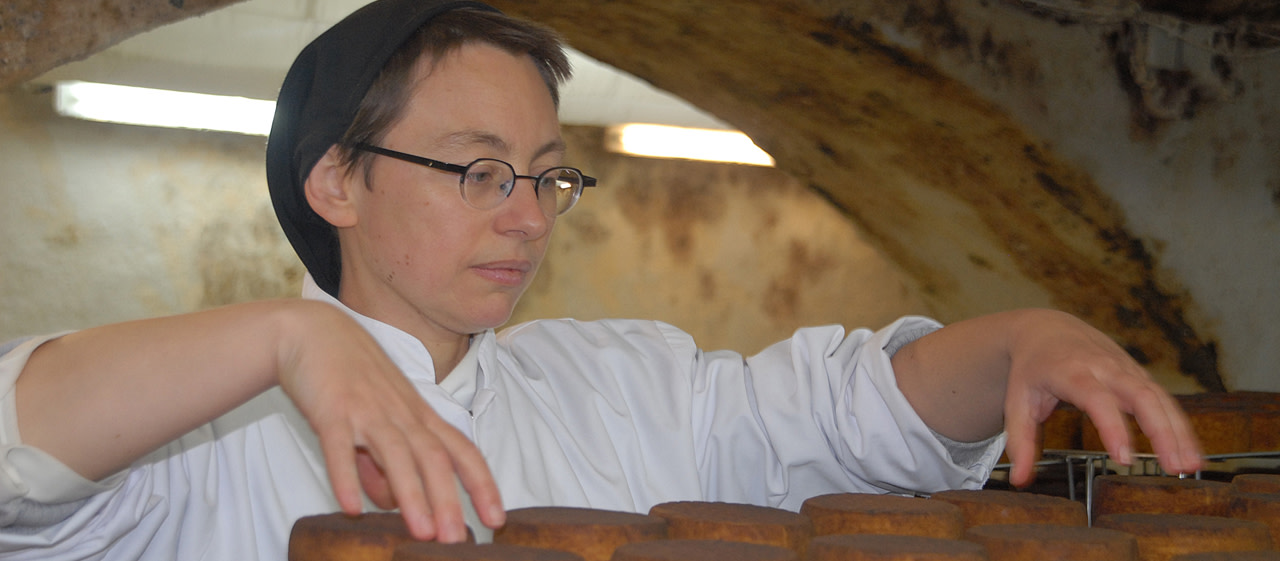The origins of the Trappe cheese recipe are a priori unrecorded. What is sure, however, is that it was the Trappist monks from Port du Salut, in Mayenne, who brought their know-how to Périgord… in 1868 to be precise, when they founded Echourgnac Abbey. Their history is therefore intrinsic to that of La Double region and its inhabitants. They drained the swamps, bought milk from local farmers, etc.
The monks moved away from here at the beginning of the 20th century. When the Cistercian Sisters from Espéra de l’Agly arrived in 1923, the abbey was empty but the inhabitants of La Double had kept the recipe preciously and passed it on to the new occupants, who then made natural Trappe d’Echourgnac exclusively in situ until the 1990s.
During this period, the obligation to comply with European standards would greatly disrupt the nuns’ future. Should they continue making cheese or move on to something else? Sister Jeanne d’Arc came up with the solution by launching experiments to see what would bring added value to the Trappe cheese.

A secret recipe
“She tried out various combinations: with Monbazillac, with Bergerac then with walnut wine… And the walnut wine produced something really interesting. This led to the creation of “Petit Noix” (small walnut) and “Gros Noix” (big walnut), as they are known here in the region”, says Sister Marie-Gaëlle, in charge of production. To sum up, Trappist cheese is pressed, uncooked, fermented by retro-rubbing or by using the “morge” scrubbing technique (where the ferments from the rinds of previous cheeses are integrated) … Then walnut liqueur from the la Distillerie du Périgord in Sarlat… How much? And, then what? Well, that’s a secret never to be told!
The other cheeses made by the nuns – natural Trappe, ewe and goat – are only on sale in the abbey boutique, where you can also find homemade jams, including the latest creation, “Roudoudou”, a dulce de leche or milk jam. Last but not least, Echourgnac is first and foremost an abbey with 7 services every day in the church, spiritual hospitality with 26 rooms and a house for young people.
Echourgnac Abbey boutique is open from Monday to Friday from 2:30pm to 5:30pm, Saturday from 10:30am to 11:30am and from 3pm to 5:30pm and Sunday from 12pm to 12:30pm and from 2:45pm to 6:30pm.
The “Petit Noix” (300 g) is sold for €6.95.
Tel: +33 (0)5 53 80 82 50. www.abbaye-echourgnac.org





